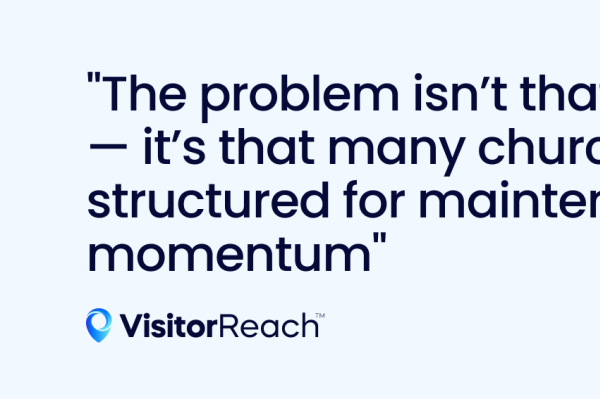Four Leadership Virtues That Win Wars

By Bill Hendricks, Executive Director for Christian Leadership at the Hendricks Center (Dallas Theological Seminary) and President of The Giftedness Center, where he serves individuals making key life and career decisions. A graduate of Harvard, Boston University, and DTS, Bill has authored or co-authored twenty-two books, including “The Person Called YOU: Why You’re Here, Why You Matter & What You Should Do With Your Life.” He sits on the Steering Committee for The Theology of Work Project.
Jim Collins, the author of “Good to Great, Built to Last and How the Mighty Fall,” profiled enterprises that are “built to last.” The United States Marine Corps is not only built to last, but built to win wars decade after decade.
How do they do it?
How do the Marines meet the challenge of leading people—mostly between 18 and 21—into life-and-death combat and consistently prevail? Former USMC officer Donovan Campbell tackled that question at a gathering of The Leader Board to share his experience.
Campbell, a graduate of Princeton, and later of Harvard Business School, was deployed as an officer twice to Iraq and yet a third time to Afghanistan. “I spent my twenties at war,” he told us.
In addition to being awarded a Bronze Star with Valor and a Meritorious Service Medal, Campbell received an advanced education in the art of leadership.
The “secret” to the Marines’ legendary record of victory, he said, can be found in four core virtues that define a Marine’s leadership and dictate his/her actions. However, he stressed that these principles apply not only in war, but in the responsibilities of peace, as well.
- The Virtue of Character
“The core of leadership is character,” Campbell stated. “And the first thing you have to be is humble.” Humility is not thinking less of ourselves, but thinking of ourselves less.
In this connection, he said the true leader doesn’t shy away from owning their faults. Instead, they listen carefully when others point out their blind spots, and deal with those flaws accordingly. As Oliver Cromwell said in correcting an artist who tried to portray him in an idealized way, “You will paint me just as I am, warts and all!”
- The Virtue of Excellence
The true leader does their best, no matter what the outcome looks to be. In an age where success tends to be all about results, this principle may come as something of a surprise.
Campbell gave the inspiring example of Dick Hoyt, whose severely disabled son, Rick, asked if his father would help him participate in a 5-mile benefit run for a tragically injured athlete. The elder Hoyt agreed. But not surprisingly, burdened with pushing his son in his wheelchair, Team Hoyt finished next to last. Yet after the race, Rick Hoyt tapped out the following message to his father: “Dad, when I’m running, it feels like I’m not handicapped.”
The statement utterly transformed Dick Hoyt’s perspective on performance. He realized that effort should never be determined by expectations, but by excellence. As a result, the duo have completed more than 1,000 races, including marathons, duathlons, and triathlons. “What inspires people,” Campbell pointed out, “is that Dick Hoyt gives his all, knowing full well he’s not going to win.”
With that, Campbell spoke openly about the fact that 10 percent of the officer corps he trained with did not make it home. “But I did. So now I see time as a gift. Tomorrow is not assured. The question is, if I made it back, then what am I doing with today?”
He recalled a sobering incantation that one of his Marine Corps instructors drilled into him and his comrades as they lay on their bunks at the end of each day: “Today I have given all that I have. That which I have kept I have lost forever.”
- The Virtue of Mission
“If you want to lead well,” Campbell reminded us, “it helps to know where you’re going.”
He joked that an older officer told him, “There are three things an officer needs to do to lead. The first is, know where you’re going. The second is, look cool. The third is, even when don’t know where you’re going, look cool.”
Yet even when a Marine doesn’t know the destination, they always know their purpose. As a result, “Whereas many people live their lives wondering if they are making a difference, Marines don’t have that problem.”
Marines, he said, are determined to be known for their ruthless dedication to honor, courage, and commitment.
“What do you want to be known for?” he asked.
- The Virtue of Courage
Campbell drew a distinction between physical courage and moral courage. Physical courage, he said, is largely just a matter of doing one’s job as a soldier.
The more difficult courage (by far, he believes) is moral courage. Moral courage is the commitment to do the right thing, regardless of the cost. To speak up even when doing so may create discomfort or conflict. To choose the tough path over the easy path, because it’s the right path.
Campbell believes that the everyday business world (where he now works) is brimming with opportunities to show moral courage. That’s quite a perspective from a man who spent the better part of a decade engaged in fire fights in the toughest hot spots of Iraq and Afghanistan. There, he said, “You go out and do your job, knowing you’re probably not going to come back.”
To learn more about studying at Dallas Theological Seminary, please fill out the request information form!
This article was previously published in DTS Magazine online. To find more resources, please visit DTS Voice.
Join believers from around the world at one of the most trusted and diverse seminaries and begin your journey of scholarship and service.





